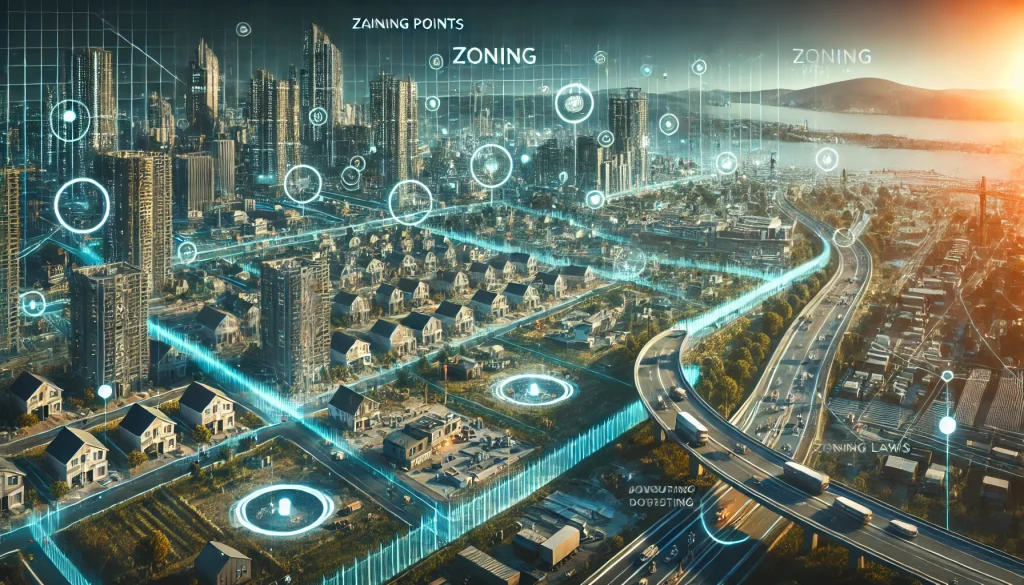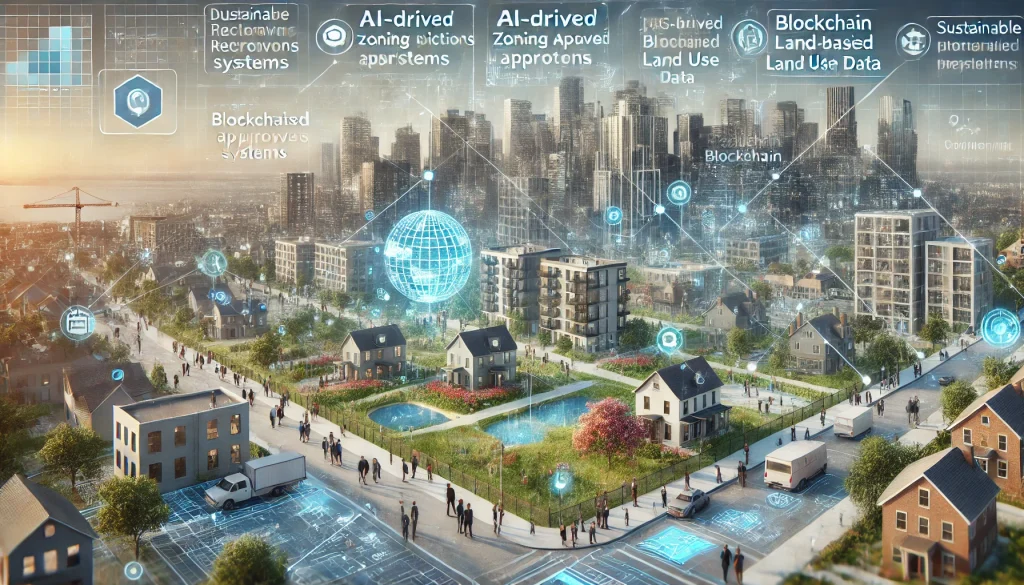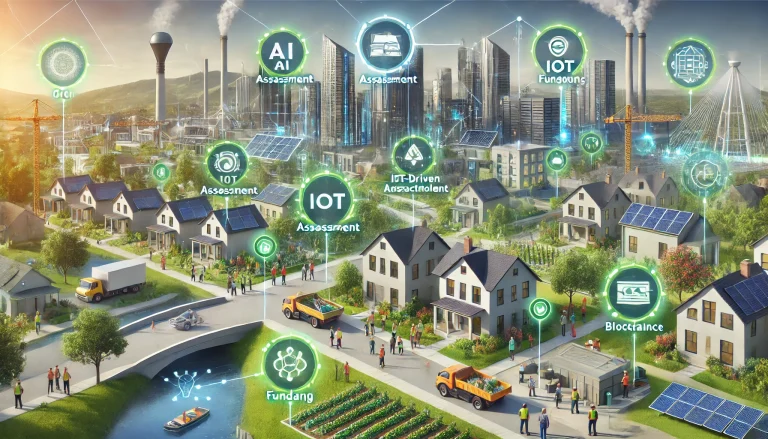Problem Statement
Zoning restrictions are regulations that dictate land use in specific areas, intended to organize urban development. However, these restrictions often limit the types of housing that can be built, exacerbating the housing shortage and driving up prices. Strict zoning laws can prevent the development of multi-family housing units, leading to a lack of affordable housing options and increased urban sprawl as people are forced to move further from city centers. To address these challenges, there is a need for a comprehensive platform that can streamline zoning processes, advocate for flexible regulations, and promote sustainable urban development.
Pain Points
- Housing Shortage: Zoning laws restrict the supply of housing, leading to shortages.
- High Housing Costs: Limited housing options drive up prices.
- Limited Multi-Family Housing: Restrictions prevent the development of multi-family units.
- Urban Sprawl: People move further from city centers due to lack of affordable housing.
- Regulatory Complexity: Navigating zoning laws is complex and time-consuming.
- Development Delays: Strict regulations cause delays in housing projects.
- Inefficiency: Bureaucratic inefficiencies in zoning approval processes.
- Community Resistance: Local opposition to zoning changes.
- Environmental Impact: Urban sprawl increases environmental degradation.
- Economic Disparities: Zoning laws often exacerbate economic inequalities.

Future Vision
Our vision is to develop a dynamic digital platform that transforms the zoning process and promotes sustainable urban development. Leveraging advanced technologies such as AI, blockchain, and GIS, the platform will streamline zoning approvals, provide real-time data on land use, and advocate for more flexible and inclusive zoning regulations. This platform will facilitate the development of diverse housing options, reduce urban sprawl, and create affordable housing opportunities. By fostering collaboration among stakeholders, including government agencies, developers, and communities, we aim to build more inclusive, efficient, and sustainable cities.
Use Cases
- Zoning Approval Automation: AI-driven tools to streamline zoning approval processes.
- Real-Time Land Use Data: GIS and blockchain for accurate, real-time data on land use.
- Flexible Zoning Advocacy: Tools to support advocacy for flexible zoning regulations.
- Community Engagement: Platforms for community input and feedback on zoning changes.
- Environmental Impact Assessment: Tools to assess and mitigate the environmental impact of urban development.
- Multi-Family Housing Development: Facilitating the approval and construction of multi-family housing units.
- Economic Impact Analysis: Analyzing the economic implications of zoning decisions.
- Urban Planning Tools: AI and big data for smart urban planning and development.
- Regulatory Compliance: Ensuring compliance with zoning regulations through automated tracking.
- Collaboration Platforms: Tools for seamless collaboration among government agencies, developers, and communities.
Target Users and Stakeholders
Target Users:
- Real estate developers
- Urban planners
- Government agencies
- Community organizations
- Homebuyers and residents
Stakeholders:
- Real estate investors
- Environmental groups
- Local businesses
- Technology providers
- Advocacy groups
Key Competition
- Zillow: Online real estate platform with property listings and data analytics.
- Redfin: Real estate brokerage offering efficient and transparent services.
- LandTech: Platform for streamlining land acquisition and development.
- CoUrbanize: Community engagement platform for urban development projects.
- Gridics: Zoning and urban planning software.
Products/Services
- Zoning Automation Tools: AI-driven systems for automating zoning approval processes.
- Land Use Data Platforms: Real-time data on land use via GIS and blockchain.
- Advocacy Tools: Platforms for advocating flexible zoning regulations.
- Community Feedback Systems: Tools for community input on zoning changes.
- Environmental Assessment Tools: Assessing and mitigating environmental impacts.
Active Startups
- Gridics: Zoning and urban planning software.
- CoUrbanize: Community engagement platform for urban development projects.
- LandTech: Streamlining land acquisition and development processes.
- Parcel: Platform for managing land use and zoning data.
- Zoneomics: Zoning data and analytics platform.
- ZoningHub: Interactive zoning maps and tools for communities.
- Symbium: Tools for visualizing and navigating zoning codes.
- CityBldr: Platform for identifying underutilized properties for development.
- UrbanFootprint: Data analytics for urban planning and development.
- PlaceSpeak: Community consultation platform for urban development.
Ongoing Work in Related Areas
- AI for Zoning: Implementing AI to automate zoning approval processes.
- Blockchain for Transparency: Using blockchain to provide transparent land use data.
- GIS Integration: Incorporating GIS for real-time land use and zoning data.
- Community Engagement: Enhancing community participation in zoning decisions.
- Environmental Sustainability: Developing tools to assess and mitigate environmental impacts.
- Smart Urban Planning: Leveraging AI and big data for efficient urban planning.
- Regulatory Compliance Automation: Tools for ensuring compliance with zoning regulations.
- Economic Impact Tools: Analyzing the economic implications of zoning decisions.
- Inclusive Housing Advocacy: Promoting flexible zoning for diverse housing options.
- Collaborative Platforms: Facilitating collaboration among stakeholders.
Recent Investment
- Gridics: $5 million in Series A funding (2023) led by Fortis Ventures.
- CoUrbanize: $7 million in Series B funding (2023) from Spark Capital.
- LandTech: $10 million in Series B funding (2023) from Growth Equity Partners.
- Parcel: $4 million in Seed funding (2023) from Urban Innovation Fund.
- Zoneomics: $6 million in Series A funding (2023) from Zigg Capital.
Market Maturity
The market for zoning and urban planning solutions is evolving, with increasing awareness and adoption of advanced technologies. There is significant potential for growth, driven by the need for efficient, inclusive, and sustainable urban development. Regulatory support, technological advancements, and stakeholder collaboration are crucial for achieving market maturity and widespread adoption of these solutions.
Summary
Zoning restrictions are intended to organize urban development but often limit housing options, exacerbating the housing shortage and driving up prices. Strict zoning laws prevent the development of multi-family housing units, leading to a lack of affordable housing and increased urban sprawl. A comprehensive digital platform leveraging AI, blockchain, and GIS can address these challenges by streamlining zoning approvals, providing real-time land use data, and advocating for flexible regulations. This platform will facilitate the development of diverse housing options, reduce urban sprawl, and create affordable housing opportunities. Active startups and ongoing innovations are driving the development of these solutions, supported by recent investments and a growing market awareness. The vision for the future is a more efficient, inclusive, and sustainable urban development process, ensuring affordable housing for all.



